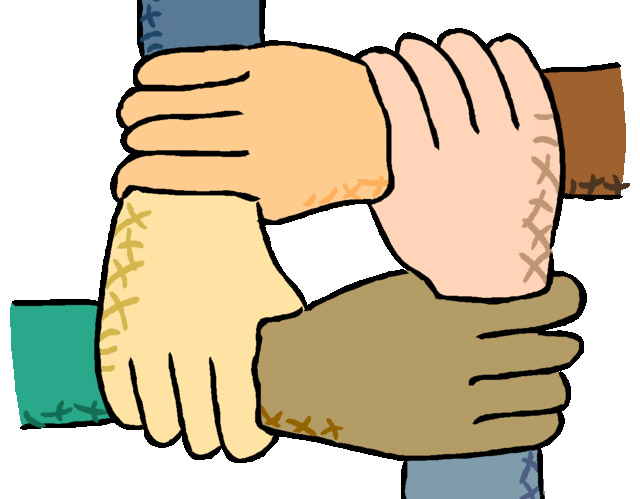IN THE MEDIA
Free speech warriors are missing the point about 18C
September 1, 2016 | Colin Rubenstein

An edited version of this article was published in The Australian – 1 September 2016
Clause 18C of the Racial Discrimination Act has recently been subject to intense criticism on ideological grounds, but many opponents misrepresent the actual operation of the Act. These efforts have been overwhelmingly rejected by a broad cross-section of Australia’s diverse communities – reflected in strong bipartisan support, federal and state, for racial hatred laws – and with good reason.
18C, subject to numerous qualifications and safeguards, prohibits specific speech that would “insult, offend, humiliate or intimidate” persons on the basis of race. Opponents of the clause paint a simplistic and misleading picture, saying 18C makes “hurt feelings” illegal or that it allows “feelings to trump reason”.
In fact, the law does not simply ask if an individual has been offended – the courts have treated “offend, insult, humiliate or intimidate” as one test rather than four and case law says that, in light of “the words chosen as its partners”, offend refers only to “profound and serious effects, not … mere slights.”
Moreover, the words “offend, insult, humiliate or intimidate” are lifted directly from section 28A of the Federal Sex Discrimination Act – yet no one has argued that this provision must also be repealed to protect free speech.
The Act also specifies that it only applies to acts “done because of the race, colour or national or ethnic origin of the other person…” – that is, it requires an intent to target someone for abuse or harassment on racial grounds.
More importantly, Section 18D of the Act exempts any “fair comment on any…matter of public interest” done reasonably and in good faith. The wide-ranging exemptions also include expressing a sentiment “in the course of any statement, publication, discussion or debate made or held for any genuine academic, artistic or scientific purpose.” This would almost certainly exempt, for example, the recent controversial cartoon by Bill Leak.
Furthermore, this Act really only offers a civil, not criminal, process to confront the most naked, blatant, intimidatory and abusive expressions of racism directed at specific individuals or groups, and this is actually how 18C has generally been applied and has functioned over its 21 years of existence.
The vast majority of claims under 18C have been either conciliated through the Australian Human Rights Commission, withdrawn or dismissed. Many cases end with a simple apology.
The positive accomplishments of the law in the small number of cases that involved a more substantive decision include: directing a webmaster remove from his site volumes of material alleging that Jewish people created a myth of Nazi genocide to achieve financial and other gains; halting a woman from distributing huge volumes of material alleging every social ill was due to Jewish malevolence; requiring an online newspaper to moderate comments accusing Aboriginal Australians in general of “criminal behavior” following the deaths of some Aboriginal juvenile offenders; requesting an apology and future safeguards from a political party which had published in its newspaper vicious material alleging Jewish people were corrupt and pornographers; sanctioning a lawyer who, on entering a court building, refused to be searched, abusively screaming at the security guard he was a “Singaporean prick” and not welcome in Australia; and helping an Aboriginal woman who was subject to a constant stream of public racial abuse from a neighbouring family.
In fact, excepting the 2011 case Eatock v. Bolt, which saw prominent columnist Andrew Bolt ordered to withdraw two columns, no other finding under 18C has proven at all controversial. The two other examples generally offered by the ‘free speech warriors” are not findings and likely never will be. As noted, the Leak cartoon is almost certainly exempt under 18D (and there is specific case law on this – see Albert Corunna and others v West Australian Newspaper Ltd). Meanwhile, the Queensland University of Technology computer labs case appears to have been badly handled by the Human Rights Commission, but based on publicly available information, looks quite unlikely to end in significant findings against the students accused.
The rise of One Nation and other populist, extremist groups and the associated ugly rhetoric that has burgeoned demonstrates the necessity of maintaining strong protections against racial hatred. Those enabling their agenda and stated intent to repeal Section 18C should look closely at the views of these extremist elements and the heightened concerns and fears in multicultural communities around the country; anxieties that will no doubt be greatly exacerbated by misguided attempts to dilute or eliminate Australia’s racial vilification legislation.
Free speech, of course, is fundamentally important to modern democracy, but this right has never been absolute. There have always been legitimate limits placed on it – from defamation, to incitement, to false advertising, to laws about perjury and other forms of lying to authorities, to shouting “fire” in a crowded theatre. Moreover, laws similar to 18C exist in the overwhelming majority of Western democracies.
Racial vilification can strongly compromise other important human rights – including the right to live free from harassment, intimidation and violence, and indeed to feel able to participate freely in society.
The fact is 18C and 18D have formed a vital pillar of successful Australian multiculturalism – helping maintain social harmony and cohesion and minimise hatred and hostility between groups.
With that harmony under unprecedented threat especially from right-wing populist groups, it is hard to think of a worse time to consider removing 18C and the modest protections against extreme vilification and the symbolic statement of communal anti-racism standards it provides.
Dr. Colin Rubenstein is executive director of the Australia/Israel & Jewish Affairs Council, taught politics at Monash University for many years and was a member of the National Multicultural Advisory Council.
Tags: Australasia





